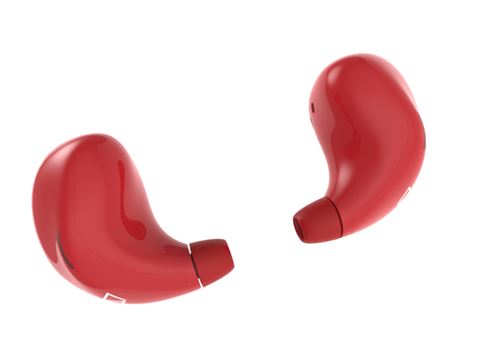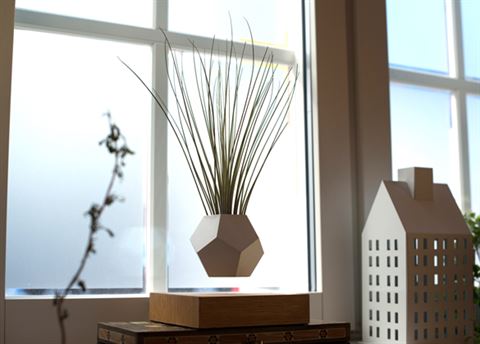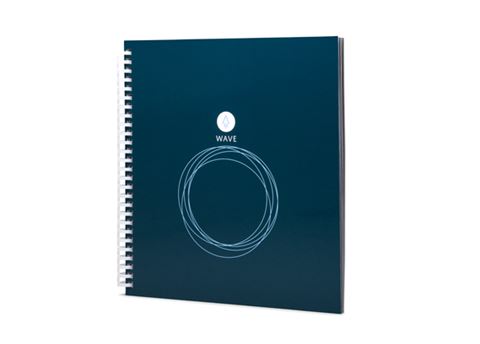THE GEAR • May 2019
Five gadgets fit for the future
We all know technology is advancing at an incredible rate, but what are the most futuristic offerings on the market right now? Financial Times’ How to Spend It tech writer – Jonathan Margolis – heads into the world of cutting-edge tech to find out
Oculus Go
This, from the Facebook-acquired Oculus virtual reality company, is the first truly portable and self-contained VR headset, and it's a breakthrough moment for this still slumbering technology. VR headsets until now have needed elaborate tethering to an expensive gaming PC, or for the user to slide a smartphone into a more basic apparatus. The Oculus Go is simply slipped over the eyes and, with minimum fuss, takes you into VR. The quality is a little below that of more expensive devices – the Go costs from just £200 in the UK – but the impact and entertainment are considerably greater.

Pilot in-ear translator
The first in-ear translation device – an idea promised for many years but never surfacing – has come, all thanks to Waverley Labs, based in Brooklyn, NYC, whose Pilot is now shipping (around £200). Place one Pilot in your ear, the other in that of the person you want to speak with, and you can then hold a conversation in any combination of up to 15 languages. Both speakers need a 4G-connected smartphone running the Pilot app but, even with a fractional translation delay, a little fiddliness and inevitable glitches, the gadget works well.

Flyte Lyfe planter
Swedish startup Flyte specialises in electrically powered levitation products, including Lyfe (pictured) – a £220 plant holder that floats in mid-air. The holder is an attractive white multifaceted silicon plant pot, and the electromagnetic levitation system enables Lyfe to support and gently rotate a plant weight of up to 250g. Flyte suggest an air plant, the Mexican type that gets its nutrition and moisture from the air, but you can equally load it with soil and some seeds.

Rocket notebook
US company Rocketbook’s notebooks are deceptively simple. They are books with plastic pages on which you write or draw in meetings or wherever. The material you jot down can then be digitised and uploaded to the cloud using a phone app. There are two versions, one called Wave (from £26), the other, Everlast (from £33). When your Wave book is full, you erase it in a microwave (no, really). The Everlast, more simply, can be erased with a damp cloth. A small cheat: you may find it easier to use the Everlast as a reusable notebook – wipe it after you’ve filled all the pages and simply photograph any material you want to preserve permanently.

Muse 2
If learning to meditate was one of your new year resolutions, now long abandoned, ponder on this wearable meditation aid, now in its second version, which originated at the University of Toronto’s neuroscience department. The lighter Muse 2 (£239) is a substantial reworking of the first iteration - now measuring bodily stillness, posture, heart rate and blood oxygenation - but the principle remains: to measure brainwaves and reward moments when you are truly relaxed with the restful sound of birdsong. Worth thinking about. Deeply.
For more of Margolis’s gadget picks, you can read his column in British Airways' Business Life magazine.

This article has been tagged Technology, Travel Tips
More from previous issues

Where to go in July
Whether you want to sink your feet into soft sand or stroll along historic cobblestones, these destinations should hit the spot this summer

The best of BA news
Business startups do battle in the sky in the Founders Forum contest, a refurbished lounge is unveiled at JFK, plus British Airways is voted top British brand in the 2019 Superbrands surveys

Where to go in May
It's a tip-top month for travel, but where are the places hotting up this May? Our destination experts shares her suggestions for your spring escape

How to be Swiss
From checking out the contemporary art scene in Basel to taking a dip in the Rhine, we find out how to get the most from a visit to Switzerland
